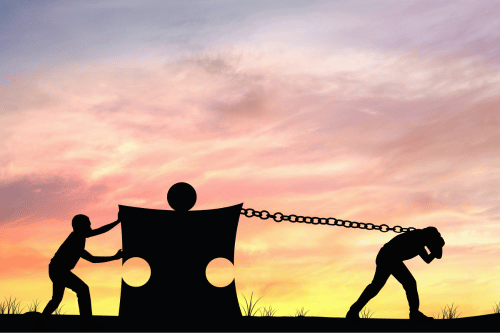Understanding Bipolar Ghosting Correlation
In today’s world of instant messaging and social media, ghosting—cutting off all communication without warning—has become increasingly common. But when ghosting occurs in the context of a mental health condition like bipolar disorder, it’s more than just a social trend—it can be a symptom of deeper mental health issues. The term “bipolar ghosting” has emerged to describe the sudden emotional withdrawal, social withdrawal, or breakdown in communication often experienced in bipolar relationships. This blog explores the relationship between bipolar disorder and ghosting behavior, its emotional impact, and actionable strategies for support and healing.
What Is Bipolar Ghosting?
Definition and Characteristics
Bipolar ghosting refers to a pattern of ghosting behaviors linked to the emotional and behavioral symptoms of bipolar disorder. These behaviors often include sudden withdrawal, unpredictable actions, or impulsive actions—especially during bipolar episodes.
People experiencing bipolar disorder symptoms may seem engaged one moment and completely distant the next. This push-and-pull dynamic, often referred to as bipolar push-pull relationships, can confuse friends, partners, and family members.
Common Triggers and Causes
Triggers for bipolar ghosting may include:
- Manic episodes or hypomanic episodes marked by impulsivity
- Depressive episodes are characterized by feelings of hopelessness or feelings of isolation
- Fear of judgment or trust issues
- Overwhelming emotions or intense mood swings
- Co-occurring conditions like comorbid anxiety disorders, autism spectrum disorder, or avoidant personality disorder
- Side effects of medication or lack of access to mental health care
Each case varies, but the core issue revolves around how extreme mood swings impact social behavior and healthy interactions over time.
The Role of Bipolar Disorder in Ghosting
Mood Swings and Communication
A defining characteristic of bipolar disorder is the presence of mood swings—from feelings of happiness during a manic episode to deep despair during a depressive state. These shifts may occur over periods of time or even by time of day.
During a manic episode, a bipolar person may engage in excessive social interactions, while during a depressive episode, that same person may isolate themselves entirely. This inconsistency can disrupt consistent communication, leading to ghosting behaviors.
The Impact of Manic Episodes
In manic or hypomanic episodes, individuals often experience:
- Elevated self-confidence or feelings of happiness
- Increased energy and impulsivity
- Reduced need for sleep
- Risky or impulsive actions, including cutting off relationships suddenly
Though these moments may seem like amazing times, they can also be a period of poor decision-making, especially without a stable bipolar disorder treatment plan.
Effects of Depressive States
Conversely, depressive episodes come with:
- Feelings of loneliness, insecurity, or guilt
- Social withdrawal and emotional withdrawal
- Exhaustion and loss of interest in daily life
- Reduced motivation to maintain social relationships
This leads to the appearance of ghosting, when in fact, the individual is overwhelmed by strong emotions and may not have the capacity for communication.
Influence of Medication and Treatment
Sometimes, changes in medication or a lack of treatment adherence can affect stable moods. For instance, side effects from medication may include fatigue, emotional numbness, or agitation. That’s why consistent treatment through licensed professionals, including regular therapy sessions, is crucial in managing bipolar mood symptoms and improving social behavior.
The Emotional Impact of Bipolar Ghosting
The Individual with Bipolar Disorder
For bipolar disorder patients, ghosting often triggers a cycle of feelings of guilt, shame, and isolation. Many experience regret once a bipolar episode subsides but feel unsure about how to repair the connection over time. This emotional roller coaster can diminish the quality of life and self-worth.
On Family, Friends, and Partners
Being ghosted by someone you care about can evoke feelings of confusion, pain, and mistrust. It’s particularly tough in long-distance relationships or with an amazing partner, where strong communication skills are vital.
Loved ones often don’t understand the mental health disorder behind the behavior and may blame themselves or view it as abusive behavior or bad behavior, when in reality, it’s a symptom of a mental health condition.
Coping Strategies for Bipolar Ghosting
Validating Emotions
It’s essential for both parties to validate their emotions. The individual with bipolar disorder needs space to acknowledge overwhelming emotions, while their loved ones must process their feelings of confusion and grief.
Respecting Personal Boundaries
Understanding that bipolar ghosting isn’t always intentional helps re-frame the narrative. Respecting personal boundaries during difficult times or tough times is key to avoiding conflict.
Enhancing Communication
Fostering consistent communication through tools like check-ins, journaling, or even timed messages can help bridge gaps during bipolar episodes. Practicing active listening, honest conversations, and uncomfortable conversations when possible can strengthen the relationship.
Encouraging Consistent Treatment
Support the bipolar partner in seeking help from a mental health professional or healthcare provider. Whether it’s Primary Care, acute and long-term care, or specialized bipolar therapy, symptoms through therapy can be managed effectively. Medication for mood stabilization also plays a pivotal role.
Navigating Relationships with Bipolar Ghosting
Managing Expectations
Adjusting expectations helps reduce the sting of ghosting behaviors. Understanding the nature of bipolar disorder symptoms can prepare loved ones for changes in behavior across periods of time.
Building Trust and Understanding
Trust-building in bipolar relationships requires patience and empathy. People with bipolar disorder often fear rejection or being misunderstood. Offer reassurance from time to time, and take a holistic approach that focuses on mental wellness, not just episodes.
Seeking Professional Guidance
Whether you’re a bipolar person or their support system, connecting with a bipolar relationship expert or mental health professional can offer personalized strategies. Therapy can also help both parties recognize and heal from patterns that contribute to emotional damage.
Reducing Stigma Associated with Bipolar Ghosting
Promoting Mental Health Awareness
Many people mislabel bipolar ghosting as intentional cruelty. However, the Journal of Affective Disorders reports that behavior in individuals with bipolar disorder often stems from intense mood swings and not from malice. Promoting mental health awareness through education can reduce stigma.
Supporting Open Dialogues
The only way to change the narrative around ghosting and mental health disorders is through open dialogue. Encouraging real people to share their bipolar disorder experience fosters empathy and breaks down misconceptions. Topics like substance abuse, alcohol dependency issues, or even baby daddy issues might emerge as part of a broader mental health story—and they deserve space and compassion.
Treatment for Bipolar Disorder
Treat Mental Health Tennessee provides structured care for individuals with bipolar disorder. We offer therapy sessions to reduce impulsive actions, improve communication, and manage mood swings. Our licensed professionals guide medication management to support stable moods and minimize side effects. We help individuals and their families understand emotional withdrawal, ghosting behaviors, and bipolar push-pull patterns. Support includes treatment for co-occurring issues like substance abuse, alcohol dependency, anxiety, autism spectrum disorder, and avoidant personality disorder. We teach strong communication skills and boundary-setting to improve relationships. Each treatment plan focuses on real symptoms, daily challenges, and long-term goals. Contact Treat Mental Health Tennessee to begin practical, consistent care with a licensed mental health provider.
Conclusion: A Comprehensive Approach to Healing
Bipolar ghosting is a complex, painful phenomenon, but it’s not insurmountable. Whether you’re living with bipolar disorder, loving someone who is, or trying to understand a past bipolar ghosting experience, the path forward involves:
- Practicing empathy and reducing fear of judgment
- Creating healthier interactions through education
- Embracing a comprehensive approach to mental health care
- Taking proactive steps toward healing and reconnection
- Encouraging actionable steps like regular therapy sessions, stable medication, and mutual understanding
In the end, it’s all about reconnecting—not just with others, but with yourself. And that takes time, support, and a willingness to face discomfort with compassion.
Need help with bipolar disorder or relationship struggles? Connect with a licensed professional today to start your healing journey.
FAQ's
Not always. Bipolar ghosting can reflect internal emotional struggles rather than issues with the relationship itself.
Yes. Many individuals become aware of their withdrawal patterns, especially after a bipolar episode has passed.
It can. Bipolar symptoms, including ghosting, may intensify during seasonal changes or stressful life events.
Yes. Therapy can help individuals develop emotional awareness and improve communication, reducing the likelihood of ghosting.













